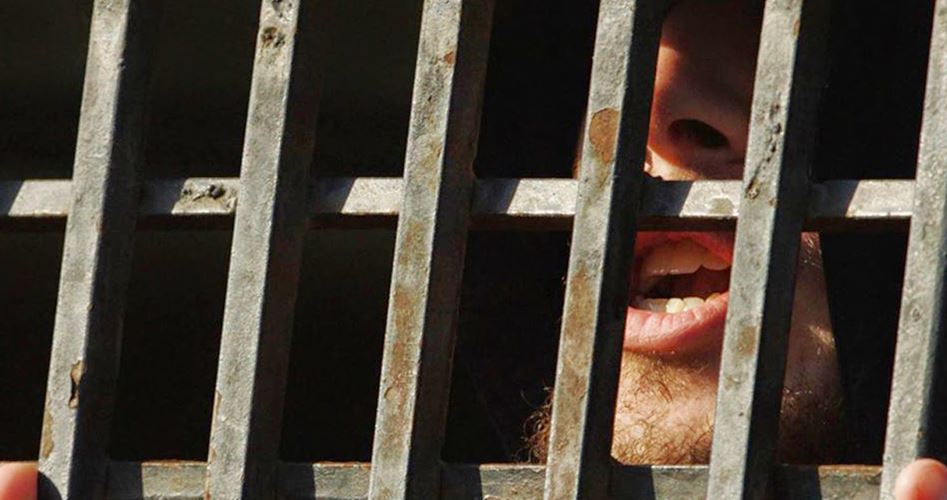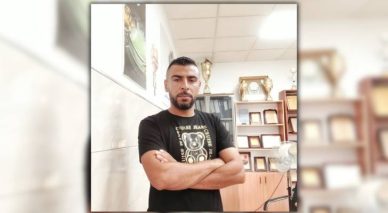Solitary confinement cells do not exceed more than 2.5 square meters each; their walls are grey reflecting the types of oppression prisoners are made to endure. These cells also include a toilet inside them. There one can’t find space to walk or move. Sun does not get in and cells are highly humid making life more miserable for the prisoners.
Solitary confinement cells look like graves meant to make humans taste death many times each day with no regard to the humanity of humans yet Palestinian freedom lovers invent unusual methods to defeat ‘the oppression’ they are exposed to there.
The interrogation period with Palestinian prisoners in Israeli jails is considered the toughest stage of imprisonment. Before being moved to a central prison usually prisoners are placed in isolation cells for a long period of time.
Observing Worms
Freed prisoner Mahmoud Awabdi from the city of Nablus who has spent 50 days in solitary confinement in the interrogation center of Pitah Tikvah said that after he performed his prayers he intentionally spoiled a pear which an Israeli interrogator called Nasim brought to him.
He told the PIC reporter “I put the pear aside until it rotted and worms started coming out of it. After that I put the worms in my palm and started watching them move and where they go. Then I would bring them back to the pear to keep them alive. I kept watching them to reduce the psychological pressure I was subjected to due to being in solitary confinement where I spent 50 days continuously before being moved to Megiddo prison after the end of the interrogation.”
He added “During the difficult interrogation period prisoners look for anything to keep themselves busy because they are isolated from the outside world and don’t know what is going on outside. The interrogation period is tough and determines the prisoners’ fate. If prisoners don’t confess they are released but if they do they are usually sentenced to long years in prison.”
Watching Flies
Palestinian freed prisoner Wajeeh Barakat from Huwara village near Nablus says he made use of the entry of a fly into his cell during his interrogation period at al-Jalame prison. He started watching the fly inspecting its moves and providing apricot jam for it so that it does not leave. He spent two months in the interrogation period where he was accused of involvement in resisting the Israeli occupation.
Speaking of other means to reduce the impact of his solitary confinement he told the PIC reporter: “Of course remembering God and offering prayers were among the top priority means. I used to estimate the time for prayer as prisoners lose sense of time and place inside solitary confinement cells and there is no call for prayer there unlike central prisons where the time for prayer can be known from the TV.”
According to Barakat placing prisoners in solitary confinement has security and psychological goals as the Israeli occupation authorities through their interrogators want to pressure prisoners to push them to confess then they want to make prisoners suffer psychological problems; “but performing prayers and keeping one’s time busy is the only way to bypass this stage which is considered the toughest”.
Rats share prisoners their food
At Huwara detention center to the south of Nablus rats share prisoners their meals. Freed prisoner Tamer Sawalaha from the town of Ourta in Nablus province says rats enter cells from under the door and look for the remains of the meals and sometimes when jailers leave meals outside the cells’ doors rats come and eat from them.
Sawalha told the PIC reporter that the detention center refuses to solve the problem of rats inside cells claiming that necessary poison is not available.














